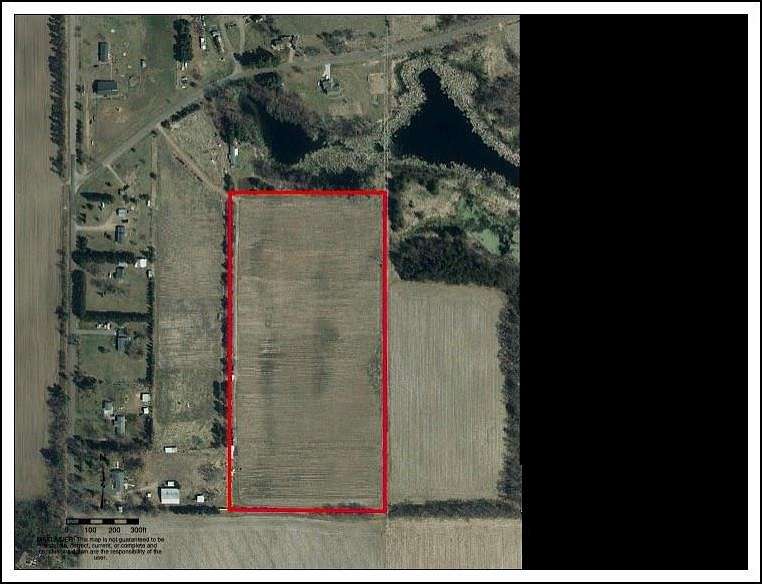Eau Claire Land For Sale – The satisfaction of purchasing quality is often deeply intertwined with the knowledge that your money is going toward something that truly deserves it. The business-for-sale market continues to evolve, influenced by economic trends, technological advancements, and shifts in consumer behavior, but one thing remains clear: buying and selling businesses will always be a fundamental part of the global economy. But is this a reflection of reality? Or is it an illusion we’ve created, an idea we’ve accepted in order to make sense of a world that increasingly revolves around consumption and profit?
At the core of this idea lies the assumption that everything, no matter how unique or rare, can be exchanged. Many buyers are drawn to industries where they already have experience, while others may seek a business in an entirely new field in order to diversify their portfolio. As more and more people become concerned about the planet’s resources and the impact of consumerism on the environment, the concept of buying used goods has gained traction as a more sustainable alternative to purchasing new products. Whether it’s a handmade leather bag, a vintage watch, or a luxury car, the term “quality” brings with it an expectation — an assurance that the item in question has been crafted with care, attention to detail, and materials that can stand the test of time. While the sale of a business can provide a valuable opportunity for both parties involved, it also carries risks. These generations are more aware of the environmental impact of fast fashion, disposable goods, and the need to adopt more sustainable practices. When a person decides to sell something, they might weigh the pros and cons, debating whether it’s the right time or whether it’s really necessary to part with what they’ve had for so long. Furniture is another category that lends itself well to the second-hand market. Thrift stores often carry a wide variety of goods, from clothing and accessories to furniture, books, and electronics, and each item comes with its own story. It forces us to ask difficult questions about ownership, worth, and the limits of human desire. The act of selling can be both a release and a renewal, a letting go that paves the way for something new and unknown. They can assist in determining the right price for the business, marketing it to potential buyers, and managing the negotiation process. In some cases, a business may look profitable but may be hiding significant underlying issues, such as declining sales, ineffective marketing strategies, or employee dissatisfaction. Millennials and Gen Z, in particular, have embraced the idea of second-hand shopping as a way to challenge consumerism, reduce waste, and express their individuality. This has made it easier for people to find items that might have otherwise been out of reach, whether it’s a rare collectible, an antique, or a product from another country. The truth is that the idea of quality is deeply rooted in the philosophy of craftsmanship, heritage, and trust, which explains why certain items, often categorized as quality goods, tend to be prized more than others, even when they may come with a higher price tag. Vintage items, antiques, and pre-loved goods often carry stories and histories that new products simply cannot replicate. This shift in mindset has contributed to a growing acceptance and even celebration of second-hand shopping, making it a mainstream activity that is not just about saving money but about making more thoughtful and responsible choices.

5.03 Acres of Residential Land with Home for Sale in Eau Claire
View property flood risksview local noise levelssearch by commute time3d tours

Eau Claire, Eau Claire County, WI Undeveloped Land, Homesites for sale
View property flood risksview local noise levelssearch by commute time3d tours

Eau Claire, WI Lots & Land For Sale Eau Claire Co 1549821
View property flood risksview local noise levelssearch by commute time3d tours

0.63 Acres of Residential Land for Sale in Eau Claire, Wisconsin
View property flood risksview local noise levelssearch by commute time3d tours

1.44 Acres of Commercial Land for Sale in Eau Claire, Wisconsin
View property flood risksview local noise levelssearch by commute time3d tours

0.46 Acres of Land for Sale in Eau Claire, Michigan LandSearch
View property flood risksview local noise levelssearch by commute time3d tours

Eau Claire, Eau Claire County, WI Undeveloped Land, Lakefront Property
View property flood risksview local noise levelssearch by commute time3d tours

20.07 Acres of Agricultural Land for Sale in Eau Claire, Wisconsin
View property flood risksview local noise levelssearch by commute time3d tours

3.3 Acres of Residential Land with Home for Sale in Eau Claire
View property flood risksview local noise levelssearch by commute time3d tours

Eau Claire, Eau Claire County, WI Undeveloped Land, Homesites for sale
View property flood risksview local noise levelssearch by commute time3d tours
The rise of minimalist living, which emphasizes owning fewer, more meaningful possessions, has played a role in this shift. Whether it’s the smooth finish of a well-polished wooden table or the satisfying feel of a perfectly balanced knife in your hand, quality goods evoke a sense of pride in their ownership. For those on a budget or looking to stretch their money further, second-hand markets provide an opportunity to purchase goods that would otherwise be out of reach. The practice of buying and selling second-hand items has been around for centuries, but in recent years, it has seen a resurgence. In a world dominated by fast fashion, disposable electronics, and mass-produced items, many people are beginning to question the value of constantly purchasing new products. In both cases, there’s a sense of vulnerability. On the other hand, traditional industries such as brick-and-mortar retail or manufacturing may face challenges, with many businesses in these sectors looking to sell or transition due to changing market conditions. In the age of immediacy, it can often feel as though many goods are made with built-in obsolescence, created to be replaced every few years. These platforms provide a convenient way for sellers to connect with potential buyers, set their prices, and arrange for shipping or pick-up. Vintage clothing, in particular, has gained a significant following, with people seeking out unique, one-of-a-kind pieces that cannot be found in mainstream stores. The growing appeal of second-hand goods is also tied to a growing awareness of environmental issues. The digital age has also transformed the way things are bought and sold. Social media platforms, for example, offer users a chance to buy into their own identity, to curate a version of themselves that is more appealing, more desirable, more marketable. The business-for-sale market continues to evolve, influenced by economic trends, technological advancements, and shifts in consumer behavior, but one thing remains clear: buying and selling businesses will always be a fundamental part of the global economy. The production of new goods often requires significant resources, such as raw materials, energy, and labor, while also generating waste and contributing to pollution. Additionally, there is the challenge of integrating the business into their existing operations and ensuring that it continues to thrive under new ownership. Books, records, and collectibles are also highly sought after in the second-hand market. One of the most popular categories of second-hand goods for sale is clothing. An item’s worth can be subjective, influenced by the desires, needs, and circumstances of both the seller and the buyer. It’s about change, opportunity, and the negotiation of value.
When consumers buy these goods, they are investing in both the product and the people behind it. In many cases, sellers may work with business brokers, financial advisors, or accountants to help value the business and identify potential buyers. These goods aren’t just products; they are symbols of craftsmanship, heritage, and pride. Millennials and Gen Z, in particular, have embraced the idea of second-hand shopping as a way to challenge consumerism, reduce waste, and express their individuality. For book lovers, buying second-hand books is an affordable way to build a library, and it can also be an opportunity to find rare or out-of-print titles that are no longer available in stores. A new smartphone, for example, can cost hundreds of dollars, but buying a used one can cut the price down by more than half. For sellers, the market for second-hand goods offers an opportunity to declutter their homes and make some extra money. The closing process also involves transferring the business’s assets, such as inventory, property, intellectual property, and customer contracts, to the new owner. The practice of buying and selling second-hand items has been around for centuries, but in recent years, it has seen a resurgence. A well-maintained, quality leather jacket may last a lifetime, whereas a low-cost alternative might only hold up for a couple of seasons. Overpricing an item can lead to it sitting unsold, while underpricing it can result in lost potential revenue. Whether buying vintage clothing, upcycled furniture, or pre-owned electronics, the growing popularity of second-hand shopping reflects a broader desire for more sustainable, creative, and conscious ways of living. For those looking to sell, the online marketplace offers the chance to reach a larger audience, increasing the chances of finding the right buyer. Whether it’s the smooth finish of a well-polished wooden table or the satisfying feel of a perfectly balanced knife in your hand, quality goods evoke a sense of pride in their ownership. Similarly, a quality suit made from fine wool will age gracefully, developing a patina that speaks to its craftsmanship. Whether someone is looking to sell their business as part of a strategic decision or to retire, or whether a potential buyer is seeking an opportunity to invest in an established company, the process of buying and selling businesses is a common yet intricate part of the global economy. Whether through thrift stores, flea markets, online platforms, or garage sales, second-hand goods provide consumers with an opportunity to find items they might not otherwise be able to afford, while also contributing to a circular economy where products are reused and repurposed. As more and more people become concerned about the planet’s resources and the impact of consumerism on the environment, the concept of buying used goods has gained traction as a more sustainable alternative to purchasing new products. The materials used, whether it’s hardwood, durable fabrics, or premium upholstery, are chosen for their longevity and aesthetic appeal. Social media platforms, for example, offer users a chance to buy into their own identity, to curate a version of themselves that is more appealing, more desirable, more marketable.